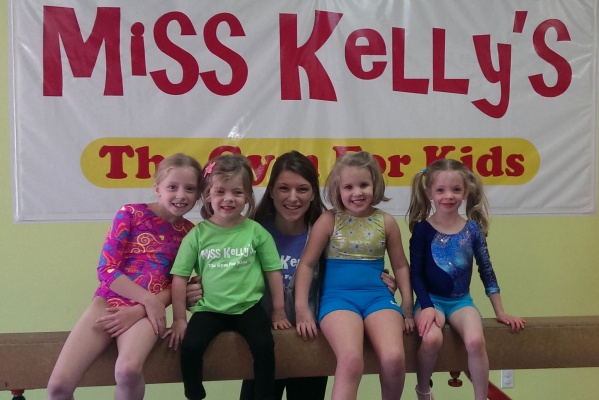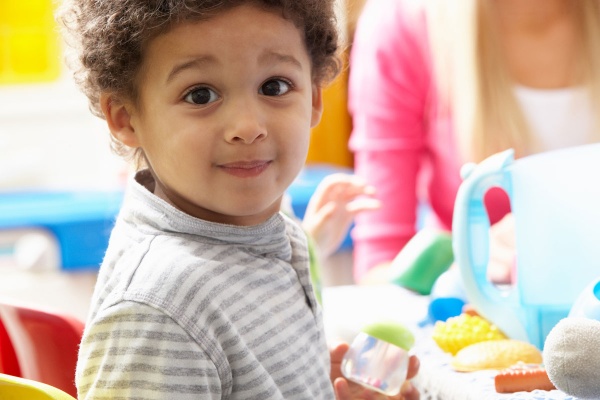

First-Time Dads are Getting Older. Does it Matter?
American men are taking a few more years to perfect their best dad jokes.
Over the past few decades, women have been waiting longer to have babies. It’s no surprise considering reproductive advancements (like egg freezing) and the fact that more women are pursuing higher education and career goals, leading to a delay in baby-making plans.
You can probably guess that the average age of men becoming fathers has risen too. A study published in Human Reproduction analyzed statistics from 168,867,480 live births from 1972 to 2015, as recorded by the National Vital Statistics System. The data showed that the mean age of men in the U.S. with newborns has risen from 27.4 to 30.9. That’s an increase of 3.5 years.
Now this doesn’t seem like a huge deal, but it does show a clear upward trend notable across all ethnic groups. Additionally, it was noted that the rate of dads over 40 with newborns has more than doubled in that time period, from 4.1 to 8.9 percent. Further, the rate of fathers over 50 nearly doubled as well. (Famous example: George Clooney welcomed new twins at age 56.)
What does it mean?
We know that there are increased risks for women becoming pregnant at an advanced maternal age (over 35), but what effect does an older father have?
“There is data that a man’s fertility declines with age. In addition, there are some potential risks to children,” said Dr. Michael Eisenberg, lead researcher in the study. “Our findings substantiate the need for further research on the health and social implications of older fathers.”
Advanced paternal age could carry risks for families:
Delayed conception
A large study published in Human Reproduction revealed that the older a man is, the longer it takes for a couple to conceive. Men over age 40 were 30 percent less likely to make a baby within 12 months as compared to those under 30 years old. This could be due to changes in sperm quality, hormone levels, and overall reproductive function. Rate of miscarriage also increases with paternal age.
Birth defects and genetic disorders
As a man gets older, sperm DNA damage and gene mutations occur at a higher rate, which can be passed on to offspring. A study published in Epidemiology reported that increasing paternal age is associated with a higher risk of cleft palate in babies, and other research reveals a correlation between advanced paternal age and conditions like achondroplasia, a bone growth disorder that causes dwarfism.
Psychiatric concerns
JAMA Psychiatry reports a correlation between fatherly age and risk of disorders like autism, psychosis, and bipolar disorder in their children. More research has also shown a higher likelihood of developing schizophrenia.
So is younger better?
If you or your partner are in the “older” category, don’t fret just yet! The risks are still low overall. We’re talking total chance of up to two percent in most cases, so the odds of kids being affected by the above possibilities is minimal. What’s more impactful is the age and health of the mother carrying the baby in combination with fatherly factors.
There are great benefits associated with older fathers:
Emotional and financial stability
“Age brings with it emotional stability, psychological strength, and financial security,” says Pasquale Patrizio, M.D., a professor of obstetrics and gynecology at Yale School of Medicine.
With age comes wisdom, experience, and a more secure sense of self. An older person has been around the block and is less likely to engage in unnecessary drama and immaturity. They’ve also had more time to further their education, pursue career goals, and achieve financial success. This all creates a more stable environment overall for kids.
Smarter kids
Yes, there’s actual research on this! In a study published in Translational Psychiatry, kids were evaluated using a “geek index” for factors that indicate higher IQ, stronger focus abilities, and less concern with fitting in with peers. Scores tended to be higher in kids whose fathers were over 35 at the time of conception. Boys with dads over 50 at the time of conception were 32 percent more likely to score very high on STEM subject exams than those born to dads under age 25.
Longer lifespan for children (and even grandchildren)
By now you know that undesired changes in sperm occur as men get older, but there is one beneficial adjustment. Telomeres (components of chromosomes that protect against aging) become longer. Longer telomeres indicate longer life span. This trait is then passed on to offspring, meaning that future generations could naturally be set up to live longer.
All things considered, if you want science to tell you the perfect age to have children, you probably won’t get a clear answer. Lately, American fathers are taking a few more years to perfect their best dad jokes, and that’s totally okay!
Photo: Adobe Stock. Reprinted with permission. A longer version of this story was originally published on parent.com.

LJ Kunkel is a mom of 3 who writes about health, fitness and parenting. She keeps her head on straight by working out, getting stuck in yoga poses and hiding all the chocolate.





















